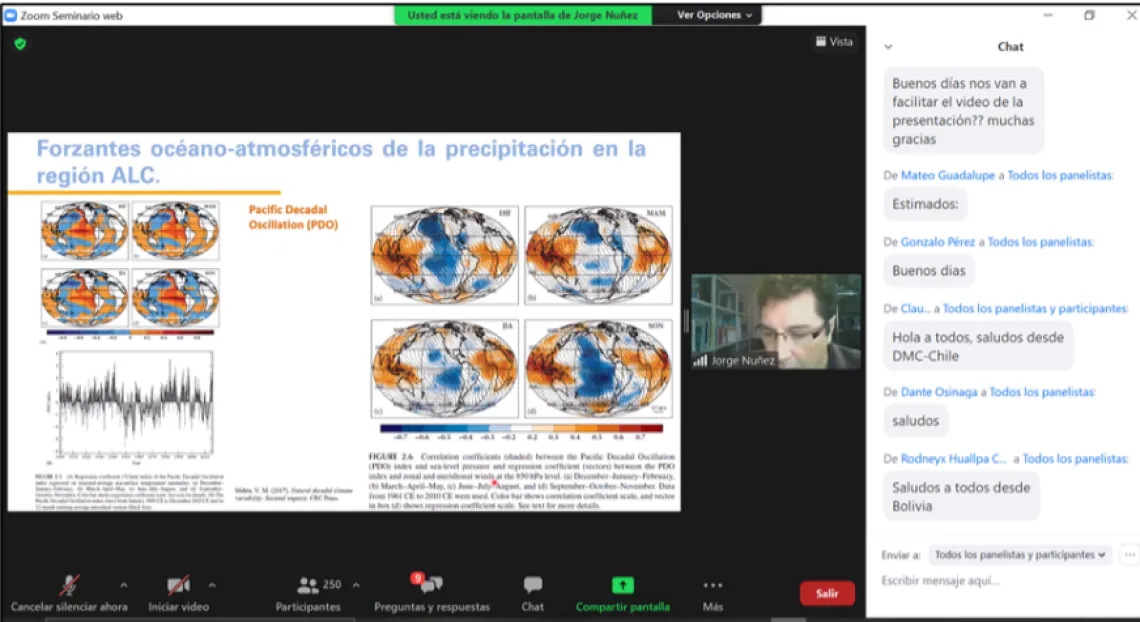UNESCO and CAZALAC hold Course on Characterization, Monitoring and Nature of Droughts

In recent decades, the effects and intensity of droughts appear to have increased in Latin America and the Caribbean, with multiple social, economic and environmental impacts. The problems imposed by droughts are the subject of urgent palliative actions by the respective governments. These actions, however, may be unsuccessful if management is not accompanied or programmed by relevant information regarding drought processes. Thus, it is important that both water professionals and decision-makers in the countries of the region have a detailed knowledge of these phenomena, so that they can make informed decisions and set up effective prevention and response systems.
For these reasons, the Water Centre for Arid and Semi-Arid Zones of Latin America and the Caribbean (CAZALAC), a category 2 centre under the auspices of UNESCO, under the framework of the G-WADI initiative of UNESCO's Intergovernmental Hydrological Programme, created an online course on “Characterization, monitoring and nature of droughts”. The course was organized in collaboration with the Ibero-American Conference of Water Directors (CODIA) and was supported by the Spanish Agency for International Development Cooperation (AECID).
The general objective of the course was to increase and standardise knowledge on the causes and modalities of droughts, and to provide information on the different tools available for monitoring, vulnerability and estimation of their frequency and intensity.
The course was conducted virtually between April 19 and 22, 2021 and consisted of class sessions of 1.5 hours each morning and one hour of questions and answers during the afternoons. In addition, the team of instructors urged and recommended the participants to review interactive information platforms, readings, and publications, in order to complement their own learning.
The classes were attended by between 178 and 255 participants, most of them from Latin America and the Caribbean. Additional versions of the course are planned for the future.
